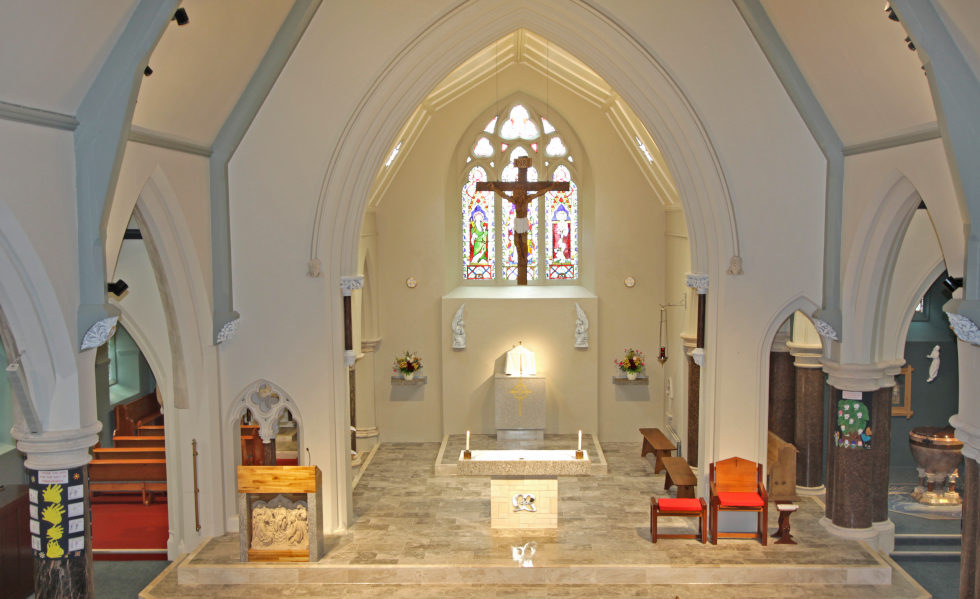Holy Communion with God, the Saints and the Church
How can we begin to do justice to the Blessed Eucharist? How could man ever hope to contain within his vocabulary the sheer wonder of what we mean when we consider the Sacrament of the altar? That God should adopt to Himself the nature of one of His creatures in the Incarnation is extraordinary enough, and blasphemous to many people. But to claim that God so humiliates Himself as to become personally present in the inanimate form of human food goes further than any religion has ever gone, claims more for divine love than could ever be expected through human intuition, and more dramatically even than the crucifixion demonstrates the lengths to which God will go to humiliate Himself if that will draw His beloved creation back to Himself. How could words do justice to the idea that God has made Himself so immediate and so accessible to the creatures He made that we can go into a Church at any time and be certain of His actual presence in a physical way (even if we are not able to appreciate His actual presence in an invisible, spiritual way at all times and in all places)? Where can we even make a beginning to describe the extraordinary and historically unprecedented way in which Christ has blessed His Church in the abiding nature of His presence in the Blessed Sacrament?
Please be aware that more has been written about this extraordinary Sacrament that any other work of the Church, and these books and meditations have been composed since the earliest days of the Church, not just since the Middle Ages. We should remember that even the Sacred Scriptures contain meditations on the Mass (see 1 Corinthians 5:6-8, 11:17ff., the Letter to the Hebrews, the book of Revelation) and the writers of the Church have composed books, poems, hymns, meditations, plays, music and even operas on the subject of the Mass. The collected corpus of Catholic thought and work on the Mass would literally take years to look at, and a great deal longer to digest adequately. The treasures of two millennia and the thoughts, prayers and insights of countless saints throughout the centuries, meditating on the gift of the Mass, are waiting for you!
To begin with, we should ask if the Blessed Sacrament and the doctrine of the Sacrifice of the Mass are an innovation of the early Church, or even of the Middle Ages. Some would argue that what we call the Mass today is not what Christ had in mind at the Last Supper and is an invention of the Church. They say that there is no precedent for the Mass and that it abuses both the Old Testament and what Christ himself intended to establish for the Church on the night before he died. You will not be surprised to read and hear that the Catholic Church firmly disputes this – the Mass is the enduring method by which Christ intended that his disciples should draw to themselves the glory, divine power and eternal life which he won for us on the cross nearly 2000 years ago.
